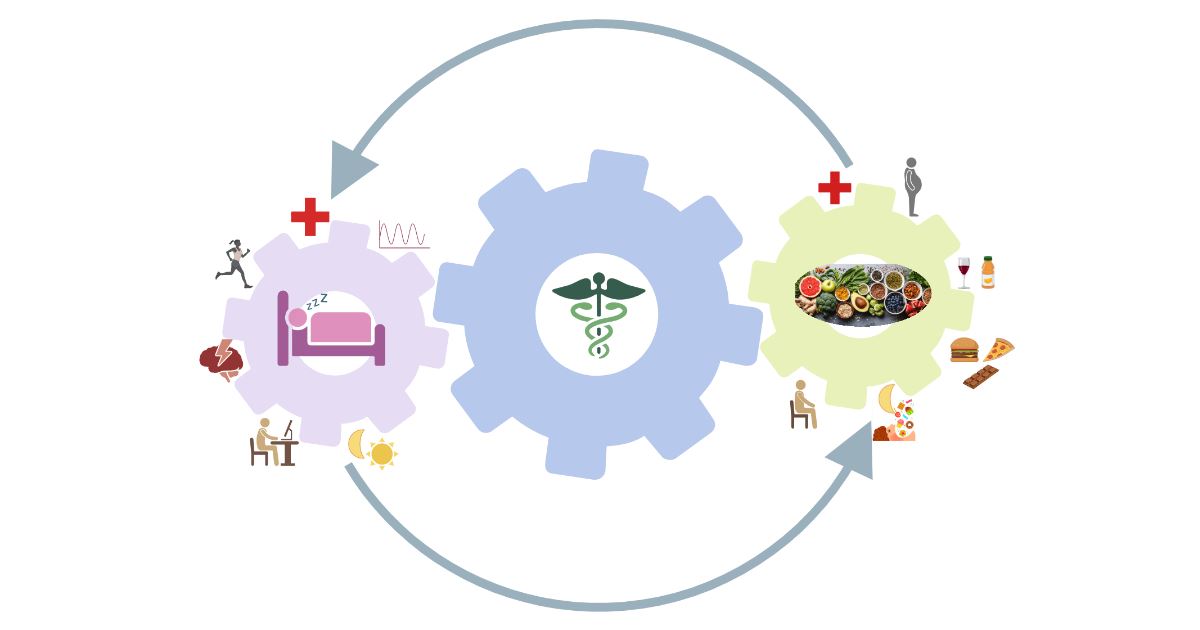- 5.0Impact Factor
- 9.1CiteScore
- 16 daysTime to First Decision
Optimizing Sleep and Nutrition for Improving Human Health
This special issue belongs to the section “Nutrition and Public Health“.
Special Issue Information
Dear Colleagues,
Achieving and maintaining good health is an increasingly sought-after goal, yet this is often difficult to attain. Among the many factors influencing this objective, sleep quality and nutritional status are increasingly recognized as key components that contribute to physical, mental, and psychological well-being. New, effective, and efficient strategies are required to improve and optimize sleep quality and nutritional status, thereby fostering positive health outcomes.
This Special Issue aims to highlight original research, reviews, and case reports, as well as hypotheses and theories, that can offer new insights and directions for either improving or maintaining both sleep quality and nutritional status. Contributions may focus on the general population or specific target groups, such as individuals with certain medical conditions, distinct age groups, or those subjected to particular socio-economic, cultural, or health conditions. Finally, the topics may encompass all three orders of health prevention and care.
Dr. Lucia Castelli
Dr. Eleonora Bruno
Dr. Letizia Galasso
Guest Editors
Manuscript Submission Information
Manuscripts should be submitted online at www.mdpi.com by registering and logging in to this website. Once you are registered, click here to go to the submission form. Manuscripts can be submitted until the deadline. All submissions that pass pre-check are peer-reviewed. Accepted papers will be published continuously in the journal (as soon as accepted) and will be listed together on the special issue website. Research articles, review articles as well as short communications are invited. For planned papers, a title and short abstract (about 250 words) can be sent to the Editorial Office for assessment.
Submitted manuscripts should not have been published previously, nor be under consideration for publication elsewhere (except conference proceedings papers). All manuscripts are thoroughly refereed through a single-blind peer-review process. A guide for authors and other relevant information for submission of manuscripts is available on the Instructions for Authors page. Nutrients is an international peer-reviewed open access semimonthly journal published by MDPI.
Please visit the Instructions for Authors page before submitting a manuscript. The Article Processing Charge (APC) for publication in this open access journal is 2900 CHF (Swiss Francs). Submitted papers should be well formatted and use good English. Authors may use MDPI's English editing service prior to publication or during author revisions.
Keywords
- health promotion
- sleep quality
- physical activity
- nutritional status
- physical well-being
- mental well-being
- improvement strategies
- optimization strategies

Benefits of Publishing in a Special Issue
- Ease of navigation: Grouping papers by topic helps scholars navigate broad scope journals more efficiently.
- Greater discoverability: Special Issues support the reach and impact of scientific research. Articles in Special Issues are more discoverable and cited more frequently.
- Expansion of research network: Special Issues facilitate connections among authors, fostering scientific collaborations.
- External promotion: Articles in Special Issues are often promoted through the journal's social media, increasing their visibility.
- e-Book format: Special Issues with more than 10 articles can be published as dedicated e-books, ensuring wide and rapid dissemination.

